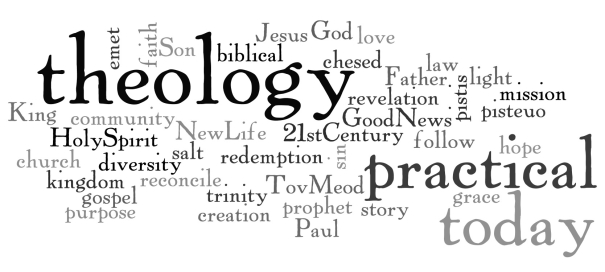In the previous post (Dot-to-Dot) we discussed a theme woven throughout scripture: “I will be your God and you will be my people” stated in some manner, shape, or form. This was God’s covenant promise to the people he called (Abraham and his decedents) to to be a blessing to the world and participate in his project of “putting creation back to rights” (NT Wright).
One of the most obscure, unknown stories in the Hebrew Scriptures, the Old Testament, is probably one of the most significant stories. In Genesis 15, Abram (soon to be renamed Abraham) asked God a question we all ask from time to time: “How do I know what you are saying is true?” So the LORD (Yahweh) said to him, “Bring me a heifer, a goat and a ram, each three years old, along with a dove and a young pigeon.” Abram brought all these to him, cut them in two and arranged the halves opposite each other; the birds, however, he did not cut in half.
Wait! Abram cut the animals in two and arranged them in two rows? God didn’t tell him to do that!! Why did he? Because in Abram’s world 4000 or so years ago, this was how contracts were signed. The parties would each bring and split animals in two, arrange them in rows, putting the birds together in a single pile at the head of the two rows.
The two parties would then each take a smoking pot or torch of some sort and simultaneously light their respective rows of animal parts on fire. They would meet at the end of the rows and together light the pile of birds afire. Basically they were saying, “If I should break this covenant, may I be drawn and quartered and burnt in a similar fashion.” They took their contracts pretty serious!

Abram apparently knew that God was about to sign a promise or covenant with him. What he didn’t know was how the signing would take place. As the sun was setting, Abram fell into a deep sleep, and a thick and dreadful darkness came over him. Then the LORD said to him, “Know for certain…” and then went on to describe the future and His commitment to Abram and his descendants. When the sun had set and darkness had fallen, a smoking fire pot with a blazing torch appeared and passed between the pieces. On that day the LORD made a covenant with Abram.
God signed both sides of the agreement while Abram slept!
That’s a covenant, Yahweh style. God did/does it all. All Abram did was show up. God did the rest. It was all about God and not so much about Abram. God was serious when he said, “I will be your God and you will be my people.” He is the promise-maker.
And he is also the promise-keeper. Fast forward a couple thousand years and we witness God as promise-keeper, this time through Jesus. God’s first promise was to Adam and Eve. He promised them everything (including the tree of life) but their desire to become like God cost them their life. They chose death over life. God honored their choice and death reigned – ultimately resulting in His own son’s death. With Jesus’ resurrection, death was defeated and the original promise was again on the table. Humanity didn’t hold up its end of the promise, but God held up his end of the covenant and fulfilled our part! “I will be your God and you will be my people.”
In Jesus, we see the smoking pot all over again. Jesus did it all. We just show up. It’s that simple. Imagine our world if we remembered to just show up and give him permission to hold up his end of the deal! It’s really all about God, not so much about us. “For God is at work within you, helping you want to obey him, and then helping you do what he wants.” (Philippians 2:13, TLB)

Love this. The headline caught my attention Curt!! God is the best promise keeper and to see Him take both sides of the covenant for us…so good!
LikeLike